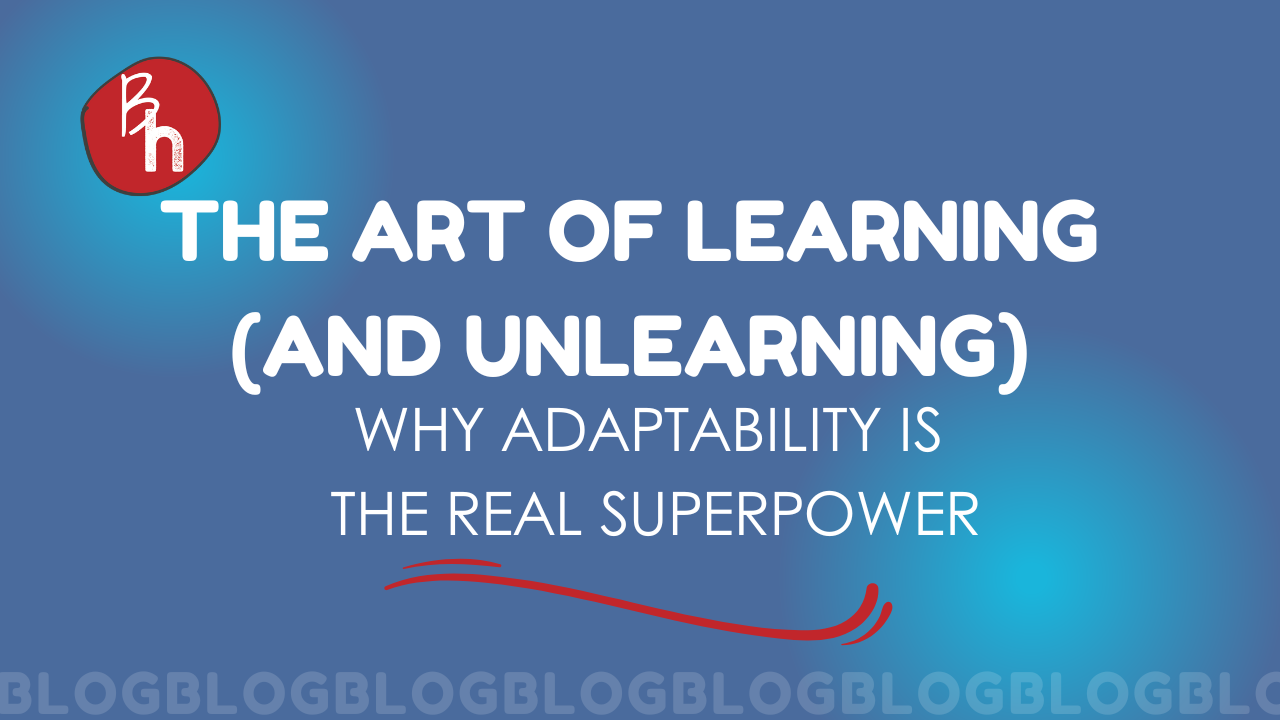The Art of Learning (and Unlearning): Why Adaptability is the Real Superpower
Feb 19, 2025
The world isn’t what it used to be. Not just in the “back in my day” kind of way, but in a fundamentally different pace of change kind of way. Things we once knew for sure, how work happens, how learning happens, what skills matter, are shifting under our feet.
Alvin Toffler saw it coming. Back in 1970, he wrote:
"The illiterate of the twenty-first century will not be those who cannot read and write, but those who cannot learn, unlearn, and relearn."
And, well, look around. The future Toffler predicted is now our present. The world moves fast, knowledge evolves, and the ability to keep up is less about what you already know and more about how willing you are to let go of old knowledge and step into something new.
This isn’t just a survival skill, it’s the foundation of person-directed, human-centred work.
Why Unlearning is Harder Than Learning
Learning? We’re built for it. It’s why toddlers figure out how to work an iPad faster than adults. But unlearning, that’s another story. Because unlearning requires something uncomfortable: admitting that what we once knew, what once served us, isn’t true anymore.
In human services, this happens all the time.
We learned certain ways of serving people, certain ideas about what’s “best practice.” But over time, those practices start to show cracks. New perspectives emerge. People with lived experience push back against old narratives. And suddenly, what we thought was helpful turns out to be harmful, outdated, or just not quite right.
Unlearning means stepping back, questioning, and letting go of the comfort of certainty. It means holding knowledge lightly, enough to use it, but not so tightly that it can’t evolve.
Relearning: The Constant Work of Staying Open
If learning is the foundation and unlearning is the hard bit, relearning is where the magic happens. It’s what happens when we integrate new perspectives, new insights, new ways of working, not just as a one-off but as an ongoing process.
It’s not just about picking up a new skill. It’s about shifting how we think.
Seeing people as the experts in their own lives, rather than assuming professionals know best.
Recognising that what worked before won’t necessarily work now, because people, contexts, and needs change.
Understanding that best practice isn’t static, it evolves as we listen, adapt, and co-create.
In a sector built on serving people, there’s a risk of getting stuck in ways of thinking that feel safe, familiar, or "tried and true." But real person-directed practice requires something different, a willingness to stay in the discomfort of uncertainty.
What This Means for Human Services
So, what does it actually look like to apply this learn-unlearn-relearn mindset in human services?
It looks like organisations that don’t just train the team once and assume they’re set for life, but instead encourage a culture of ongoing reflection, curiosity, and adaptation.
It looks like questioning policies and approaches that were built with good intentions but don’t actually reflect what people need now.
It looks like centring lived experience, not as a token gesture but as a fundamental part of decision-making.
It looks like making peace with the fact that we’ll never have it “all figured out” and that’s a good thing. Because it means we’re always learning, always evolving, always making things better.
At Being Humanly, we believe real change starts with staying open to the possibility of being wrong. Not as a failure, but as a strength. Because the work we do isn’t about proving we have all the answers, it’s about building something better, together.
If that sounds like the kind of space you want to be part of, let’s have a chat.
Stay connected with news and updates!
Join our mailing list to receive the latest news and updates from our team.
Don't worry, your information will not be shared.
We hate SPAM. We will never sell your information, for any reason.

